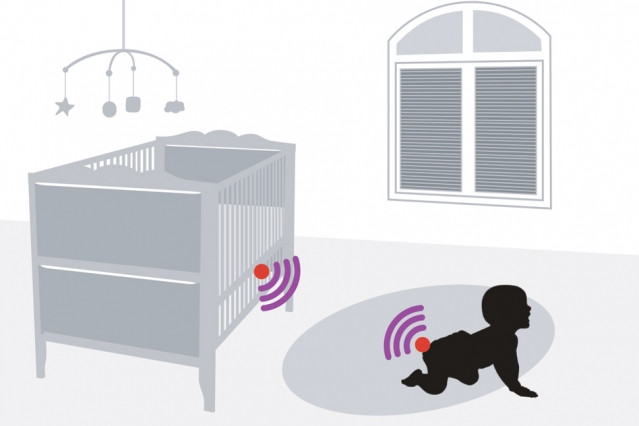
The moisture sensor consists of a passive radio frequency identification (RFID) tag, that is placed below a layer of super absorbent polymer, a hydrogel typically used in nappies to soak up moisture. When the hydrogel is wet, the material expands and becomes conductive enough to trigger the RFID tag to send a radio signal to an RFID reader up to 1m away.
RFID tracking system could replace machine vision on robots
The researchers from MIT claim the design is the first demonstration of hydrogel as a functional antenna element for moisture sensing in nappies using RFID. They estimate that the sensor costs under 2 cents to manufacture, making it a low-cost, disposable alternative to other smart nappy technology.
Over time, smart nappies could help record and identify health problems, such as signs of constipation or incontinence. The new sensor may be especially useful for nurses working in neonatal units and caring for multiple babies.
Pankhuri Sen, a research assistant in MIT's AutoID Laboratory, envisions that the moisture sensor could also be integrated into adult incontinence pads, for patients who might be unaware or too embarrassed to report themselves that a change is needed.
"Nappies are used not just for babies, but for ageing populations, or patients who are bedridden and unable to take care of themselves," Sen said in a statement. "It would be convenient in these cases for a caregiver to be notified that a patient, particularly in a multibed hospital, needs changing."
"This could prevent rashes and some infections like urinary tract infections, in both ageing and infant populations," said collaborator Sai Nithin R. Kantareddy, a graduate student in MIT's Department of Mechanical Engineering.
Sen, Kantareddy, and their colleagues at MIT, including Rahul Bhattacharryya and Sanjay Sarma, along with Joshua Siegel at Michigan State University, have published their results in IEEE Sensors.





Poll: Should the UK’s railways be renationalised?
If only the track is nationalised then it is an emasculated one with limited function and improvements will be focused on existing commuter and large...